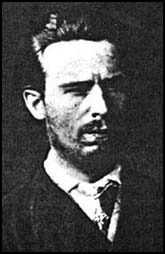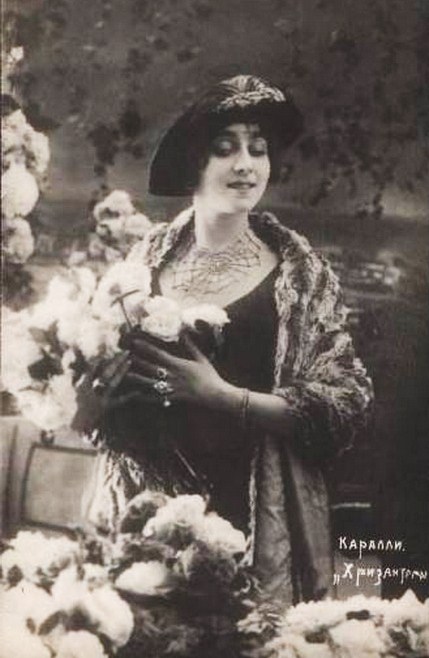|
Ivan Mosjoukine
Ivan Ilyich Mozzhukhin ( rus, Иван Ильич Мозжухин, p=ɪˈvan ɨˈlʲjitɕ mɐˈʑːʉxʲɪn; —18 January 1939), usually billed using the French transliteration Ivan Mosjoukine, was a Russian silent film actor. Career in Russia Ivan Mozzhukhin was born in Kondol, in the Saratov Governorate of the Russian Empire (present-day Penza Oblast in Russia), the youngest of four brothers. His mother Rachel Ivanovna Mozzhukhina (née Lastochkina) was the daughter of a Russian Orthodox priest, while his father Ilya Ivanovich Mozzhukhin came from peasants and served as an estate manager for the noble Obolensky family. He inherited this position from his own father — a serf whose children were granted freedom as a gratitude for his service.Oleg Sirotin (2014). Double Star: Aleksandr and Ivan Mozzhukhin' double biography in the Penza Regional Library, electronic version (in Russian)Oleg Sirotin. Family and fatherland of Ivan Mozzhukhin' article from the Notes on Film St ... [...More Info...] [...Related Items...] OR: [Wikipedia] [Google] [Baidu] |
Penzensky District
Penzensky District (russian: Пе́нзенский райо́н) is an administrativeLaw #774-ZPO and municipalLaw #690-ZPO district (raion), one of the administrative divisions of Penza Oblast, twenty-seven in Penza Oblast, Russia. It is located in the center of the oblast. The area of the district is . Its administrative center is the types of inhabited localities in Russia, rural locality (a ''village#Russia, selo'') of Kondol. Population: 51,308 (Russian Census (2010), 2010 Census); The population of Kondol accounts for 6.5% of the district's total population. Notable residents *Vyacheslav Gladkov (born 1969), politician, born in the village of Kuchki *Ivan Mosjoukine (1889–1939), silent film actor, born in Kondol References Notes Sources * * {{Use mdy dates, date=October 2012 Districts of Penza Oblast ... [...More Info...] [...Related Items...] OR: [Wikipedia] [Google] [Baidu] |
Kiev
Kyiv, also spelled Kiev, is the capital and most populous city of Ukraine. It is in north-central Ukraine along the Dnieper, Dnieper River. As of 1 January 2021, its population was 2,962,180, making Kyiv the List of European cities by population within city limits, seventh-most populous city in Europe. Kyiv is an important industrial, scientific, educational, and cultural center in Eastern Europe. It is home to many High tech, high-tech industries, higher education institutions, and historical landmarks. The city has an extensive system of Transport in Kyiv, public transport and infrastructure, including the Kyiv Metro. The city's name is said to derive from the name of Kyi, one of its four legendary founders. During History of Kyiv, its history, Kyiv, one of the oldest cities in Eastern Europe, passed through several stages of prominence and obscurity. The city probably existed as a commercial center as early as the 5th century. A Slavs, Slavic settlement on the great trade ... [...More Info...] [...Related Items...] OR: [Wikipedia] [Google] [Baidu] |
Imperial Russia
The Russian Empire was an empire and the final period of the List of Russian monarchs, Russian monarchy from 1721 to 1917, ruling across large parts of Eurasia. It succeeded the Tsardom of Russia following the Treaty of Nystad, which ended the Great Northern War. The rise of the Russian Empire coincided with the decline of neighbouring rival powers: the Swedish Empire, the Polish–Lithuanian Commonwealth, Qajar Iran, the Ottoman Empire, and Qing dynasty, Qing China. It also held colonies in North America between 1799 and 1867. Covering an area of approximately , it remains the list of largest empires, third-largest empire in history, surpassed only by the British Empire and the Mongol Empire; it ruled over a population of 125.6 million people per the Russian Empire Census, 1897 Russian census, which was the only census carried out during the entire imperial period. Owing to its geographic extent across three continents at its peak, it featured great ethnic, linguistic, re ... [...More Info...] [...Related Items...] OR: [Wikipedia] [Google] [Baidu] |
Russian Revolution Of 1917
The Russian Revolution was a period of political and social revolution that took place in the former Russian Empire which began during the First World War. This period saw Russia abolish its monarchy and adopt a socialist form of government following two successive revolutions and a bloody civil war. The Russian Revolution can also be seen as the precursor for the other European revolutions that occurred during or in the aftermath of WWI, such as the German Revolution of 1918. The Russian Revolution was inaugurated with the February Revolution in 1917. This first revolt focused in and around the then-capital Petrograd (now Saint Petersburg). After major military losses during the war, the Russian Army had begun to mutiny. Army leaders and high ranking officials were convinced that if Tsar Nicholas II abdicated, the domestic unrest would subside. Nicholas agreed and stepped down, ushering in a new government led by the Russian Duma (parliament) which became the Russian Prov ... [...More Info...] [...Related Items...] OR: [Wikipedia] [Google] [Baidu] |
Kuleshov Effect
The Kuleshov effect is a film editing (montage) effect demonstrated by Russian film-maker Lev Kuleshov in the 1910s and 1920s. It is a mental phenomenon by which viewers derive more meaning from the interaction of two sequential shots than from a single shot in isolation. Specifics Kuleshov edited a short film in which a shot of the expressionless face of Tsarist matinee idol Ivan Mosjoukine was alternated with various other shots (a bowl of soup, a girl in a coffin, a woman on a divan). The film was shown to an audience who believed that the expression on Mosjoukine's face was different each time he appeared, depending on whether he was "looking at" the bowl of soup, the girl in the coffin, or the woman on the divan, showing an expression of hunger, grief, or desire, respectively. The footage of Mosjoukine was actually the same shot each time. Vsevolod Pudovkin (who later claimed to have been the co-creator of the experiment) described in 1929 how the audience "raved about the act ... [...More Info...] [...Related Items...] OR: [Wikipedia] [Google] [Baidu] |
Lev Kuleshov
Lev Vladimirovich Kuleshov (russian: Лев Владимирович Кулешов; – 29 March 1970) was a Russian and Soviet filmmaker and film theorist, one of the founders of the world's first film school, the Moscow Film School. He was given the title People's Artist of the RSFSR in 1969. He was intimately involved in development of the style of film making known as Soviet montage, especially its psychological underpinning, including the use of editing and the cut to emotionally influence the audience, a principle known as the Kuleshov effect. He also developed the theory of creative geography, which is the use of the action around a cut to connect otherwise disparate settings into a cohesive narrative. Life and career Lev Kuleshov was born in 1899 into an intellectual Russian family.Lev Kuleshov, Aleksandra Khokhlova, ''50 Years in Films''. Moscow: Iskusstvo, 1975, 303 pp. (Autobiography) His father Vladimir Sergeevich Kuleshov was of noble heritage; he studied ar ... [...More Info...] [...Related Items...] OR: [Wikipedia] [Google] [Baidu] |
The Queen Of Spades (1916 Film)
''The Queen of Spades'' (russian: «Пиковая дама», Pikovaya dama) is a 1916 film adaptation of the 1834 Aleksandr Pushkin short story of the same name. It is noted for its high production values, directorial technique and psychological depth of acting, especially by Ivan Mosjoukine. It is considered to be one of the best pre-revolutionary Russian films. The film was the second production of the story, the first being the silent short film adaptation of the Pyotr Tchaikovsky opera by Pyotr Chardynin in 1910. Yakov Protazanov uses a wide combination of narrative, staging and camera techniques, many of which were unusual for that time, including retrospection, visions (prototypes of the stream of consciousness), split screen combination shots, flashbacks, jump cuts, deep focus and deep staging, and dissolves. Plot As described in a film magazine, Hermann, a Russian military officer with a limited fortune, is fascinated when he hears the story of Countess Fedotovna, wh ... [...More Info...] [...Related Items...] OR: [Wikipedia] [Google] [Baidu] |
The Devils (novel)
''Demons'' (Reforms of Russian orthography, pre-reform Russian: ; post-reform rus, Бесы, Bésy, ˈbʲe.sɨ; sometimes also called ''The Possessed'' or ''The Devils'' is a novel by Fyodor Dostoevsky, first published in the journal ''The Russian Messenger'' in 1871–72. It is considered one of the four masterworks written by Dostoevsky after his return from Siberian exile, along with ''Crime and Punishment'' (1866), ''The Idiot'' (1869), and ''The Brothers Karamazov'' (1880). ''Demons'' is a social and political satire, a psychological drama, and large-scale tragedy. Joyce Carol Oates has described it as "Dostoevsky's most confused and violent novel, and his most satisfactorily 'tragic' work." According to Ronald Hingley, it is Dostoevsky's "greatest onslaught on Nihilism", and "one of humanity's most impressive achievements—perhaps even its supreme achievement—in the art of prose fiction." ''Demons'' is an allegory of the potentially catastrophic consequences of the Nihili ... [...More Info...] [...Related Items...] OR: [Wikipedia] [Google] [Baidu] |
Dostoyevsky
Fyodor Mikhailovich Dostoevsky (, ; rus, Фёдор Михайлович Достоевский, Fyódor Mikháylovich Dostoyévskiy, p=ˈfʲɵdər mʲɪˈxajləvʲɪdʑ dəstɐˈjefskʲɪj, a=ru-Dostoevsky.ogg, links=yes; 11 November 18219 February 1881), sometimes transliterated as Dostoyevsky, was a Russian novelist, short story writer, essayist and journalist. Dostoevsky's literary works explore the human condition in the troubled political, social, and spiritual atmospheres of 19th-century Russia, and engage with a variety of philosophical and religious themes. His most acclaimed novels include ''Crime and Punishment'' (1866), ''The Idiot'' (1869), ''Demons'' (1872), and ''The Brothers Karamazov'' (1880). His 1864 novella, ''Notes from Underground'', is considered to be one of the first works of existentialist literature. Numerous literary critics regard him as one of the greatest novelists in all of world literature, as many of his works are considered highly influent ... [...More Info...] [...Related Items...] OR: [Wikipedia] [Google] [Baidu] |
Vera Karalli
Vera Alexeyevna Karalli (russian: Вера Алексеевна Каралли; 27 July 1889 – 16 November 1972) was a Russian ballet dancer, choreographer and silent film actress during the early years of the 20th century. Early life and career Born in Moscow, Karalli graduated from the Moscow Theatre School in 1906 under the direction of the prominent Russian instructor Alexander Gorsky. Karalli performed with Sergei Diaghilev's Ballets Russes company in 1909, as well as 1919 and 1920.Andros on Ballet She became a soloist at the after two years and became a ballerina in 1915. Karalli was frequently paired with ''danseur'' |
Pyotr Chardynin
Pyotr Ivanovich Chardynin (russian: Пётр Иванович Чардынин) ( – 14 August 1934) was a Russian and Soviet film director, screenwriter and actor. One of the pioneers of the film industry in the Russian Empire, Chardynin directed over a hundred silent films during his career. Biography Chardynin was born Pyotr Ivanovich Krasavtsev on 10 February 1873 in Simbirsk, Russian Empire (now Ulyanovsk, Russia). In 1890, he was admitted to the Drama School of Moscow Philharmonic Society, where he studied under Vladimir Nemirovich-Danchenko from 1891. After graduating, he adopted stage name of Chardynin and started both acting and directing career in provincial Russian theatres in Belgorod, Orekhovo-Zuevo, Uralsk and Vologda. He first began experimenting with short films in 1907. In 1908, Chardynin joined the troupe at Vvedensky Narodny Dom in Moscow and, as a part of it, started his film acting career in ''A 16th Century Russian Wedding'' and '' Song About the Mercha ... [...More Info...] [...Related Items...] OR: [Wikipedia] [Google] [Baidu] |
Pushkin
Alexander Sergeyevich Pushkin (; rus, links=no, Александр Сергеевич ПушкинIn pre-Revolutionary script, his name was written ., r=Aleksandr Sergeyevich Pushkin, p=ɐlʲɪkˈsandr sʲɪrˈɡʲe(j)ɪvʲɪtɕ ˈpuʂkʲɪn, a=ru-Pushkin.ogg; ) was a Russian poet, playwright, and novelist of the Romantic era.Basker, Michael. Pushkin and Romanticism. In Ferber, Michael, ed., ''A Companion to European Romanticism''. Oxford: Blackwell, 2005. He is considered by many to be the greatest Russian poetShort biography from University of Virginia . Retrieved 24 November 2006.Allan Rei ... [...More Info...] [...Related Items...] OR: [Wikipedia] [Google] [Baidu] |
%2C_still_01.jpg)
.jpg)




